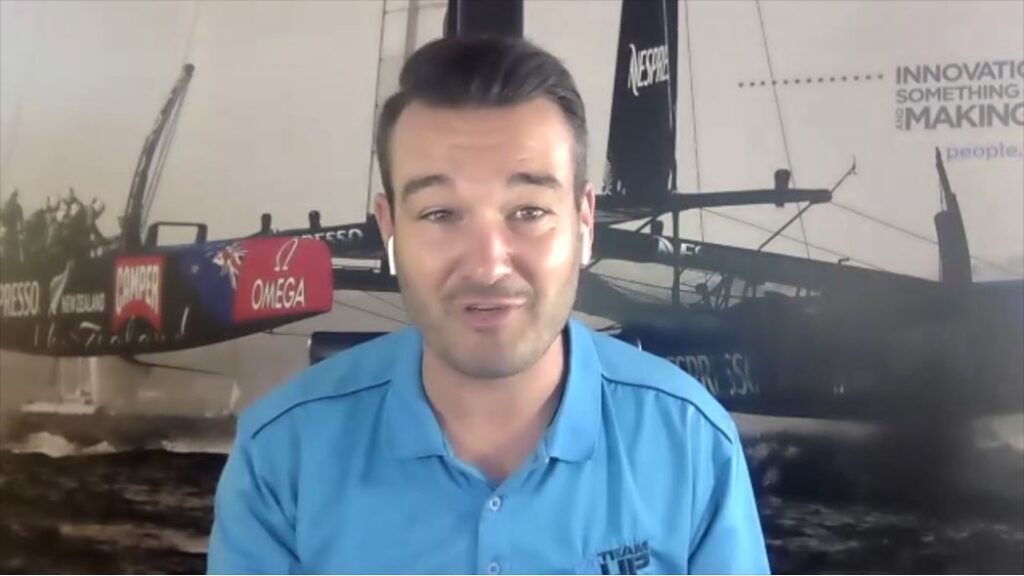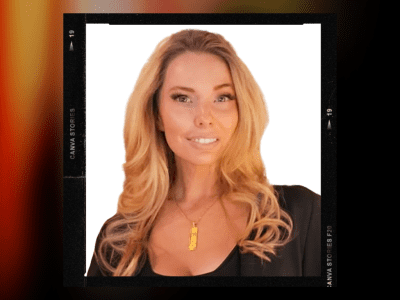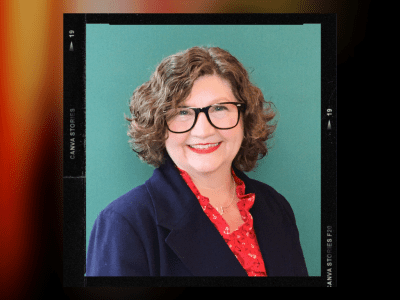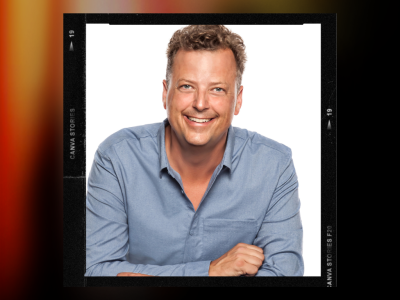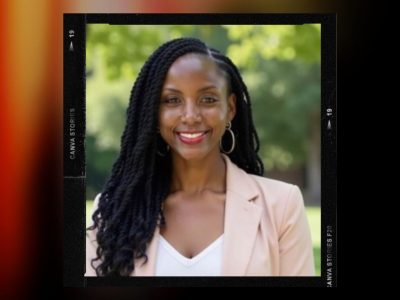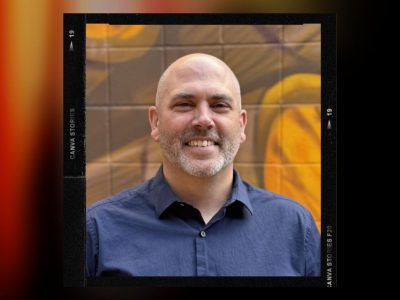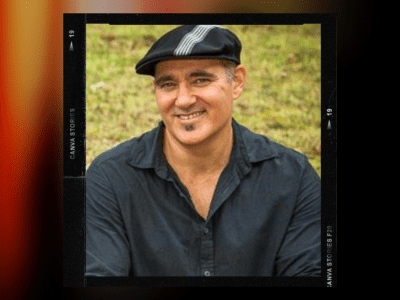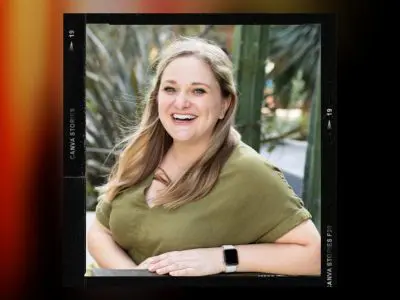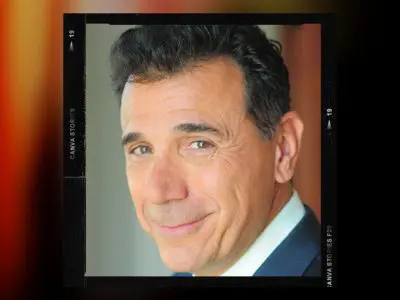The Road To Live Events
In the US, we are slowly starting to re-open and get ready for live events. One of our Catalyst partners in New Zealand, Stu has already returned to in-person events.
Use the buttons above to listen now.
Transcript - The Road To Live Events
Rich
The following is a presentation of team bonding, providing more than 100 live virtual or hybrid corporate team building activities for companies around the world. Visit team bonding.com to schedule your event. Now
on this episode of team building
Stu
saves the world. No, I think the key we attitude and mentality is sort of roll your sleeves up.
Let’s get through it.
Rich
You talk about the one to 10. When do I know what number I need to be looking
Stu
for? So around giving them fun, but with learning and with value, the cost of getting it wrong far, outweighs the cost of getting it right.
Rich
Hello team. It’s me, your old friend, Richard Rininsland host of team building saves the world. The show where I speak to the leaders, the innovators of the team, building industry from all across the globe, trying to find out what about that industry is so important, especially in the world of today.
And today we’re going back to around the world. Reaching all the way up to Auckland New Zealand to talk to the leader and creator of team up events Stu Robertson. But first I need to send my thanks out to my supporters at the catalyst team building network. Find out more about the world’s largest network of team building providers@catalystglobal.com and now team join me in welcoming all the way from Auckland New Zealand, the managing director and founder of Teamup events.
Mr. Stu Robertson. Hello Stu Hey, what’s the weather like out there in Auckland?
Stu
Look, we’re out. We’re in the middle of a really good speller weather. It’s been hot and dry, lots of time for the beach skating and to the great outdoors of New Zealand. That’s
Rich
it. I am officially jealous, but Stu my team out there is going to wonder about you.
They’re going to wonder who this guy is that I’ve been talking to. So why don’t you go ahead. Let’s tell them a little bit about you’s Stu Robertson
Stu
look we’ve, uh, team up for and New Zealand. We were founded seven years ago off the back of those, my experience in the industry for about. 10 years prior to that, um, in terms of my background, and I’ve always been working with high performing teams or high performing athletes come from a football playing and coaching backgrounds, and then have, uh, have transferred that experience or skillsets into the, the corporate team building or team development sort of space.
So, so that’s me, in a nutshell,
Rich
you’ve been doing this about 10
Stu
years, is that correct? Yeah, same house. About seven years. And then about 10 years, uh, experience previous to that. So 15 to 20 years around there.
Rich
What however makes you go from your sports background to team building?
Stu
Well, it’s a little bit of a natural progression.
So obviously you’ve been working in the industry and it was just a natural progression of those skillsets. And so a corporate team environment, rather than as thought sitting, um, opportunity to come and work with businesses and really help them develop the people, grow their business. And, uh, and become a high-performing things on their own.
Right?
Rich
What do you see as the major difference between say a professional sporting team and the corporate team?
Stu
A lot of similarities and a lot of differences in terms of similarities, most teams we find already have the tools and resources and skillsets to be successful. It’s just a matter of helping them unlock the potential, but obviously the big differences, sports teams, you know, full-time professional athlete, that’s all they’re focusing on and working on and often their
their lives outside of the sport will revolve around sport, obviously in a corporate setting and a business setting. We’ve got to juggle out our personal lives with our work lives. So we’ve got to try and get that balance.
Rich
So let’s talk about that. Um, is that something that you help people to accomplish discovering the difference between the two.
Or is it more about when you go in you’re all about the corporate life?
Stu
Most people will, especially now a postcode will coming up to post COVID in some parts of the world. It’s, um, it’s around that work life balance and understanding how one can unpack the other, uh, positively and sometimes negatively.
Um, so it’s helping teams understand, you know, building better relationships. Understanding communication styles, personality, all these things can have a huge benefit, not only in the workplace, but also in your personal,
Rich
can you give me an example of something like that? Like, let’s talk about something, something from someone’s corporate life that you’ve seen that you think could actually assist them in their, in their more personal
Stu
day.
Yeah, absolutely. A lot of it comes around communication styles and, uh, one of the products we use called extended disc will give insights into personality types, both conscious how we think we need to be and unconscious how we actually are. Well, how we really are. Sometimes when we take out our clients or participants through these, uh, these assessments or these workshops, you know, it can be quite confronting.
And sometimes the, the reaction can be this report doesn’t reflect me. However, what we would always say to those, but take it home. Give it to your husband, your wife. father maybe even your children quite often, the, the feedback they’ll get is, yeah, this is actually you in a nutshell. So around raising self-awareness, that can
Rich
be a big part.
Let’s go back for a second. Cause you had talked about, you know, coming out of the COVID life, New Zealand had a very different start. To the whole COVID pandemic than we did here in the U S as I understand it, you guys went into lockdown very quickly with, I don’t want to say draconian measures, but certainly, uh, an idea of keeping the nation safe.
How did COVID work out for you over there?
Stu
Thank you. Um, the first thing is we have been impacted by COVID, but just like everywhere else around the world, our lockdowns may not have been as long or continues with the same effects as many other countries have experienced. But, you know, we were impacted, we had, you know, businesses shutting down, people working from home, a rapid switch from, you know, the, the social connections used to get day-to-day in the workplace too.
It’s been completely gone and everyone being online, zoom teams, WebEx, et cetera, et cetera. Last year, 2020, obviously we probably had two main lockdowns. Uh, we’ve seen that to bounce back pretty quickly. And then this year we’ve just had an, an Auckland in New Zealand. We’ve had a couple of weeks of lockdown through February, but again, I think the key we attitude and mentality is sort of roll your sleeves up.
Let’s get through it. And then also when we come out of it, let’s get back to doing business. Let’s get back to meeting in person. Let’s get back to face to face. We all know the value of it. And if anything, you crave it a little bit more when you don’t have the opportunity to do it day to day
Rich
Take us back back. If you can, to those early days for Teamup events, what did it look like?
How did you know this was coming? And what did you guys decide to do?
Stu
To be fair? We were a little bit behind the rest of the world. You could say that we should’ve seen that coming, but you know, That’s pretty quick. And it was about a year ago, actually. I think it was a year ago, three days ago, 19 to March was when New Zealand went and lockdown, it came out of the blue, the border shut
then we went into a full, full week, locked down and you know, the real key thing for any business in New Zealand then was how do we pivot ? How do we change? How do we adjust? Now we have to have this remote working environment. How do we balance having kids at home, but also, you know, keeping the wheels turning from a work perspective, uh, for Teamup events.
So it was how do we connect our clients? How do we give them the same great service. The same engagement and we build those same connections, but just in a virtual environment now. So again, through the catalyst network, right able to, um, you know, to brainstorm, to create innovate with our partners around the world to develop a full suite of remote or virtual products, which I continuing to go strong for the state.
Obviously we know in New Zealand having moved now back to predominantly face-to-face, um, that’s where people want to be. Yeah. When we do have these lockdowns, like a couple of weeks ago, we’re now in this great situation where we can pivot really easily. And we can say to our clients, Hey, look, your event can still go ahead.
And we can still build these great connections and relationships, but now we’re just changing the venue essentially, instead of doing it in your offices or in your conference room or out, down around the city. Now we just take the team, the biggie online. So we were very fortunate. It was a lot of hard work, but now we have this full compliment, I suppose, of face-to-face hybrid events, which can be a mix of.
Both face-to-face and virtual and of course, a full suite of online and remotely events.
Rich
Nice. And do you find that you’re getting a lot of that hybrid or is it mostly one or the other
Stu
to be really honest with the hybrid for us, it tends to be between our partners and Australia and ended up selves where we have companies will have an office in Australia and New Zealand.
Traditionally they’ve come together in one location and we’ve had a live event. Now we’re having a big suite. That’s been delivered, live in Australia. Live in New Zealand, but connected, virtually, um, over conferencing platforms like WebEx or teams or zoom and so on. So there are some benefits that come out of it.
Rich
Yeah. Are, are you still seeing that people are hesitant to gather again? Or is it something that they’re eager to do
Stu
very much eager? I mean, people there’s no substitute for face-to-face. I think that’s one of the big learnings. It’s almost like it went through a little bit of a trend at the beginning of 2020.
Everyone’s like remote and virtual is great. Working from home is great. We love it. And then I think the longer it’s gone on, the more people want to get back into the office face to face. They want those social connections, those relationships, those interactions, and that we just. You know, you do miss when you are working remotely.
Rich
What about you yourself? Any personal preferences, whether it’s live virtual or hybrid of the two,
Stu
you just can’t beat the interaction of a, of a live crowd. Running a business virtually is a skillset in itself, as I’m sure you’d know, running these, these podcasts with people around the world. Sometimes you can miss that little bit of interaction with the crowd or with the teams and participant in a virtual setting compared to a live setting for me personally.
Yeah. I love it. The crowd there’s there’s no doubt about that.
Rich
Well, what do you prefer? Outdoor or indoor? I mean, coming from a sporting background, like you have your outdoor events must be insanely good.
Stu
Again, it’s more around matching events to client’s outcomes. And I suppose the real kick for us or the, the driving factor for us is how much can we help the client?
How can we benefit the participants? How can we help drive them forward? Now whether that’s an, an outdoor setting and then will see it in the evening, whatever it might be, that sort of secondary to actually being able to go high. We’ve walked away from this event, we’ve made a difference. We’ve helped create some relationships, maybe break down some barriers, open up some doors for that particular team so that they can drive forward to achieve their goals.
So that’s probably the big driver for us, rather than which particular style of event, just like, there’s not the perfect tool for every job. There’s not the perfect event. Every team it’s around thinking a little bit. Deeper understanding the pain, the business, and what their drivers or objectives are.
And then really trying to customize or tailor an event that’s going to deliver some real return on investment and some value for that.
Rich
Are you guys still finding that there are still directives you have to follow regarding COVID when you get back to the live events?
Stu
Look, I think a lot of it in New Zealand as G suite, we asked sort of governed by.
Alert Levels And we have restrictions depending on what alert level with sitting in, um, nationally in New Zealand. So at the moment we’re in a alert level one, there’s no restrictions on gatherings, but you know, we have possible, there are guidelines and follow around, you know, good hygiene and social distancing and these types of things.
And, you know, I think as part of everyone in New Zealand, our team of 5 million, everyone’s really committed to stamping out the virus and, um, allowing businesses to keep operating, allowing people to be able to come back into the workplace. So. People have been really disciplined and really supportive of following, I suppose, what you’d call best practice so that we can enjoy the freedom that we currently have in New Zealand.
Rich
You still doing
masks and so forth
Stu
mask coming. So fit that alert level two and three in New Zealand. And that’s mainly on things like public transport, but in terms of Aetna moments, you know, you can walk down to the supermarket, to the shopping mall, you know, this handset and applies to everywhere. We have QR codes where you can scan in to record where you’ve been, but there’s no sort of restrictions around group numbers.
I mean, we had some great big rugby games played in New Zealand and over the weekend with huge crowds, we’ve just had the America’s cup. We were treated very proudly, a defendant and, you know, life is pretty much back to normal, but the big one for us to New Zealand as the borders are closed. Um, and that’s probably the one that we feel the most.
So New Zealand, very reliant on tourism, just the, um, ads with our business events groups coming into New Zealand. Right. And, uh, and while those borders, uh, remain closed, you know, it does take a hit, but you’re still
Rich
finding even with closed borders, that virtually you’re able to actually still keep those people
coming in.
Stu
Look, I think with the virtual stuff, with our borders closed, that’s around connecting our Australian clients and New Zealand clients, clients have offices in Asia. We’re able to still connect to those through the power of teams. Um, but in terms of the, you know, bringing them in for these incentive conferences or business to deeds, where they would come and spend three hours.
Eyes around the country. That was obviously very much on hold at the moment. Sadly.
Rich
That’s a fascinating stuff’s Stu. Can you hold on for me for one second, tell all my team out there about catalyst team building that and association of team building providers with representatives in over 90 countries.
Speaking more than 20 languages. The catalyst network is widely regarded as the voice of the team. Building industry network members share resources, best practices and business opportunities. Catalyst partners are learning from each other and pushing the boundaries of what is possible. In team building catalysts network members share a common goal of creating highly relevant, socially responsible, good value experiences for their clients.
For more information, please visit catalyst global.com. The catalyst team building network, the world’s largest network of team building providers. Let’s talk about Teamup events. Uh, you have the motto of challenge and inspire and achieve. What does that actually mean to you?
Stu
Yeah. So, so those three words, quite powerful when quite prominent and what we try to do everyday for our clients, obviously it’s around challenging, traditional ways of thinking opening up people’s eyes to new ways of thinking or new ways of looking at things.
Um, and then obviously the, the inspires, inspiring the power of teamwork. So getting people to understand their, I suppose, individual importance and collective value to the organizational, to the team. And then obviously the achievers as really helping our clients achieve their goals. So understanding what they’re working towards and how we can help them, um, take positive steps towards achieving those goals.
So it’s very central to what we do as a team building or, or what I like to call a team engagement company. Um, that’s, that’s really trying to develop teams. It’s not just about. Having a fun time together, obviously, you know, we always say fun as sinful to any event because fun helps create the engagement, but it’s actually about how can we have the fun with the value with some learning that can be transferred back into the workplace environment or some learning that can help us build more positive or more effective relationships within the workplace.
Yeah, it’s, it’s really important to us, we think. Uh, but it’s really nice to see what, who we are as a, as a company and a brand, and also gives our clients an insight and we want, you know, assist them with, I suppose. It sounds
Rich
fantastic. I’ve loved just the philosophy of, I very much try to live up to that kind of thing myself over here in the States, but you were talking about rather, can you give me an example of an event that you do where you can actually have someone be inspired by it and learn?
Because a lot of what I hear from people outside of the industry is how does this really help or is it just. An hour and a half, two hours of fun. So we get to relax a little bit. What is the difference
that you see?
Stu
Yeah, look, I think, um, first of all, it’ll come with the brief for the beats and we always talk and I’m sure you’ve heard before from a number of my colleagues from the catalyst network, but we always talk about the scale of one to 10 and one, the seed of the scale might be team bonding, shared experience, pure fun, an opportunity just to relax.
Um, and, and enjoy the company of your colleagues and maybe learn a little bit more about them in an informal environment. You know, there’s that saying that you learn more about a person and an hour of play than in the lifetime of conversation. So that’s sort of your one end of the scale. Uh, and then at the teen end of the scale, you have your very sort of outcome focused in building thing development.
There are specific messages or specific. You know, not issues, but maybe performance traits that we want to address, whether it’s around breaking down silos by mentality or cross-functional communication. So the first part really is finding out where the clients. Uh, once the events assess or what their objectives are.
So we can matchevent out on that scale, that’s going to go into suit and then it comes, it comes into the delivery. So, um, how we tailor the delivery to the client that could be based on, you know, what type of business they are, the demographic, the gender split, the age range options within the business.
So again, it’s around tailoring your deliberate and then the real power comes in the debrief and how you can then relate. Some of those scenarios and situations that you’ve been able to create through experiential learning and the program will be a beam and transfer them back to the workplace. So when the situation arose in the program, how did we react?
What did we do? What, what did we do? Well, what could we have done better? What might we do differently next time? And then how can we relate that back into the work environment? So sometimes a lot of the specific work examples can come from the clients themselves. And for us, I suppose there’s the facilitators or providers.
We would speak to the general, but having the reinforcement where you can week, you can have a debrief where groups and go actually light bulb moment. I know when we’re in talking to our accounts team or when we’re in engineering or whatever it might be, this happens sometimes. And like, now I can see.
The relevance of what’s happened in this event and how we might adjust ourselves back in the workplace.
Rich
So let’s go back.
Let’s talk about the one to 10. Let’s say, for example, I am like the head of HR for a major corporation. And when should I know, not only when it’s time to actually bring my team together, bring you folks in to come and liven up my team to give them that team building experience.
But also when do I know what number I need to be looking for?
Stu
Look most of in organizers, HR, for example, there’ll be a purpose to the reason for thing. It might be an induction. It might be a conference that might be a strategic team planning day. And depending on the theme of the reason why they’re coming together, that will have a big input into the type of a event.
And we might sit on that scale. So for example, a client might be coming together. It might be a graduate induction. These people don’t know each other so well. So one of the big drivers is going to be getting them to really mix and mingle, to meet each other, to understand the different personalities falls in the group.
And so that might naturally lean the program one blade or another, where a client has specific objectives or content that they want to intertwine it into the event. Again, that can direct the program or the recommendations either way on that scale. So if they’re launching new products, they want to intertwine that into the event and might actually become.
Object focused rather than just pure fun, or if they’re launching new organizational values, for example, and it’s going to be very outcome focused, it’s around giving them fun, but with learning and with relating it back to the Wickham bar.
Rich
Now, you also mentioned the individual important versus your collective value.
What’s the difference? And how do you have one?
Stu
Proven everyone wants to go to a workplace where they feel part of a team. We have great relations. Ships with a positive contributors to the payment where they feel valued. So the individual important piece is really important because that’s the engagement.
That’s what makes people be an active participant and the team, not a passive participant. So I suppose people actually need to understand the role they play in the theme and the value that they bring now, whether they’re understanding their own skillsets, understanding their own personality style.
Understanding part that they play in the overall theme. So the cog in the wheel type scenario. So we’re really focused on trying to open up. People have used not only for themselves, but also the way they look at their colleagues and understanding their individual importance and the strengths and attributes and qualities, characteristics that they bring.
And once we had that, then we’d go from this transition from. Uh, passive participants to active participants on the thing. And that’s when we’re able to really understand that when, you know, the sum of our parts is always going to be greater than the individual parts. So it’s around, how do we all contribute to an effective and efficient team?
Rich
Do
you have a way of pointing that out to people? Like, can you give me an example of an event where somebody didn’t really see how they helped add to what, to their teamwork?
Stu
Absolutely. Look, I think with, um, with some of those examples, very, very program specific, but if you look at something like, uh, the big picture, which would probably be one of the most famous products in the catalog team-building network.
You know, if one person doesn’t play their role or contribute or communicate, or if the line of communication doesn’t flow to all of the members, then we could end up with a canvas. That’s not quite right. That the colors don’t quite complete. So the overall end product and the big picture is a fantastic example of high.
If we look at these 15 or 16 canvases. Perfect. This is a great example of when we’re all on the same page. Um, when we’re all pulling in the same direction, indications, good. Look how efficient our fit. We can be, how well we can perform and Hey, maybe let’s have a look at least two or three canvases that.
No, not quite as good, but full of high wind. When we may have been neglect our communication a little bit, all the information doesn’t flow through the whole team, then obviously that’s a reminder of the importance of that communication of that team and of everyone playing their role within the team to contribute to the final outcome.
Rich
Do you have a personal favorite event you like to lead or that you liked? I mean, you’re the boss now. So I can’t imagine you’re digging in, you’re rolling up your sleeves and getting into it with everybody. Do you have a, the big picture?
Stu
I would say in terms of connecting with the clients, you know, the big picture we design an image, which represents the client’s business, the pain, and, you know, incorporate all of the key outcomes or the values, vision products, whatever it might be.
And then. The, the company as a whole, essentially draw and paint this image without either seeing the whole image. So the program’s very powerful. It’s it’s collaborative. Um, you know, strongly emphasis on communication and the end output directly reflects the way that that team or business has worked
together during that two hour, three hour period.
So the product high impact has genuine wow factor, but you look and talk to the participants, post the beans, and they have this real sense of ownership around what they’ve created and what they’ve done. And as I mentioned before, the best part isn’t that it’s all perfect because it never is perfect, but no team is perfect.
It’s actually showing up the bits that, Hey, this was really great and look how good we can be. And here’s a reminder of why these other funds are important and we need to keep working on them and focusing on them day to day. So that particular program for me, as an absolute standout, never fail. Another one that I thoroughly enjoy.
And I just ran the first one last week for over a year as a, as a product we developed. Here in New Zealand called the situation room, which is very much a business simulation type of into run agile ways of working now pre COVID and before COVID came and there was the big shift and a lot of organizations around the world.
So agile ways of working. So it’s being able to adapt and adjust and often not have to see the whole picture, but just know that whatever we’re working on at the moment, It’s going to play a role in, on what the team’s driving towards. So this particular program, very high impact, time bounds, lots of time, pressure and lots going on all at one, focusing on that edge, all those agile ways of working.
So that particular product, um, one, you know, we’re very proud of that same app that we developed ourselves. We launched. Uh, through the catalyst network and 2019, we’re expecting big things in that in 2020, before COVID. And obviously with the shift to, or the focus to remote or virtual of beans, that one sort of, uh, taken a backward step over the last 12 months, but I’m sure as we, uh, we hit back to face-to-face events over the next 12 to 18 months, it will become a strong product around the
world.
Rich
Fantastic. Tell us, tell us more about situation room. Cause that’s the one I’m not familiar with
Stu
because of the situation room is essentially it’s around, uh, an illicit trade scenario. There’s a briefcase that’s been recovered with a sort of setting the theme for you. A briefcase that’s been recovered.
So each team has briefcase on the table and quite different from a facilitation perspective that. All of the facilitation is done via video prerecorded videos. And literally you get a little video update, a status update, and then you get some clues as to how to open a compartment within your briefcase.
And inside that compartment, there are a number of challenges that you have to complete in order to find out information around this develop things scenario with the situation. So in New Zealand, we think of, you know, sort of the white house and the, and the big boardroom and the white house. Correct.
a crisis this than a situation. How do we, how do we react to stimuli? How do we react to time pressure? How do we react to information or lack of information? And then how do we coordinate ourselves as a team? Because there’s so much going on at one time and then our teamwork coordinated, or is it chaotic?
Are there missing links in the chain or are we able to remain a piece of even when under pressure? So yeah, very high pressure. It has a bit of a, a sort of, uh, uh, Uh, you know, Bourne identity, men and black sort of type theme to it. Yeah. One that’s, uh, you know, we’ve, we’ve delivered around the world already.
In fact, we’ve run some, we’ve had a bench running, uh, United Kingdom and Ireland, and we ran a situation room in Mexico for some of our cattle spot. We’ve run it in Bali and Indonesia. Uh, and the last one we ran overseas was in Macau and Hong Kong. So it’s still really spreading, I suppose, around the world.
Um, and we look forward to seeing that grow more probably 20, 22 and
Rich
beyond, just to explain to my team, if you can, how do you manage that? Yes. So this
was
Stu
very much a face to face event. Um, obviously when we made the shift to virtual, that was one event we felt it would lose too much of what makes it special.
If we tried to make it a virtual event, that’s very much a face-to-face event, very tactile. So it does rely on that. Attached and feel quite a bit, but in terms of rolling it out globally from using a virtual setting. So, you know, we run training for the program virtually for facilitators all around the world for our callous partners, use of video training as well.
But yeah, this is one of things that’s a bit short remains, very much face to face.
Rich
I am always amazed by the catalyst partners and how they’ve managed to actually not only trade these events, but also the best practices and the new ways of doing anything. Especially at the beginning of, COVID trying to take everything to virtual, just to give you an example from my own personal life, I walked into my boss’s office one day, a little over a year ago, and he looked right at me and he goes, Hey, I just want you to know that no matter what you’ve heard, we’re going to keep this going.
We’re talking right now with other catalyst partners, we’re figuring out how to make the switch and I’m looking at him going, what are you even talking about? Because you, you folks having seen it and what, how quickly we needed to react and respond. We’re already beginning the steps to change it. Do you have any other examples about how like your team, either catalyst or your own personal facilitation team managed to really step up and make this all work
Stu
for you?
Yeah, absolutely. I mean, I look, I think it was more just a, the willingness of the network to really band together and find ways that we can help our clients, which of course, if we can help our clients that helps all of us as individual businesses around the world. Um, you know, the, the power of the catalyst network is the partners.
There’s just absolutely no substitute for the knowledge and experience that you have from the partners. When we combine together, when we come together to, um, develop new products or discuss best practice or even sharing information around what, you know, these platforms that we’re using virtually now, you know, what are the best platforms for particular scenarios or how do we adjust our facilitation style to suit remote or virtual delivery versus live delivery?
Um, so yeah, th the catalyst network on the whole, the partners are, are really what make it sick. And I suppose from a client’s perspective, That’s when you engage a catalyst partner, you’re not just engaging that one, this one country that I’ve got the power, the experience, the expertise of the whole network around the world and going into helping your event be a success.
And quite often you say, you know, would you, you wouldn’t send your child to a school with an qualified teachers. Um, so why would you use a team-building provider? And that doesn’t have that qualification, that experience and that expertise behind it. And the reality is when you’re doing engage in a team building event for a lot of our clients, you know, it might only happen two or three times a year.
So you’ve only got two or three opportunities to really have high impact high value. And one of my favorite sayings is the cost of getting it wrong far, outweighs the cost of getting it right. And what should be a fantastic experience for you’re saying if you don’t get it right. Can actually be very, very detrimental.
So yeah, when you engage with Catalyst that’s what you’re engaging with.
Rich
Speaking of getting it wrong. One of my favorite things that my listeners love. Is hearing personal stories either for you or one of your facilitation team about when something went so completely wrong, like an unforeseen circumstance hit and you had to, you had to do a personal pivot on the day of, do you have any stories like that, that you could share with us?
You don’t have to get into client names or your own facilitator?
Stu
Absolutely. Traveling internationally for events is something that. You know, it requires its own level of experience and you have to go through some, some road bumps to build that experience. But a really good story was flying out to Fiji to run a big picture event.
And we had to organize an exhibition wall. And so we used these exhibition walls to hang the big picture canvases on to do the reveal at the end of the event. So it’s very, very pivotal. It’s essentially you drop the sheet and is the image hanging, but you know, all the canvases and so on. So yeah, absolutely.
Absolutely. So going up to Fiji, you know, obviously we can’t take it a 10 meter by two meter high exhibition. We’ll look up on the plane. So we need to, we need to organize that locally and Fiji and Fiji. There’s a little saying, I’m sure you’ve heard the saying before, but you know, everything’s on Island time.
It’s a very, you know, relaxed. Fly sunshine. And everything’s a little bit more slower and I suppose a little bit more casual. So we engaged with our supplier up and Fiji to provide us with an exhibition more. We sent them photos of what we needed. Very clear. This is exactly what we need. And then we get up there and the exhibition was being delivered on the morning of the event.
So it’s going to arrive at nine o’clock that’s starts at 1:00 PM. No problems. They’re all feeling really confident with slowing up. We’ve got our canvases, our paint, brushes, everything. We need 150 people. And then obviously we’re in the conference room sitting up and waiting for exhibition to arrive and it arrives.
And it’s just completely different to what we’d ordered. So the normal scenario with. Exhibition walls. Is there actually got a fabric covering on them that you can Velcro straight to? Right. So the wall, the wall that they bought up was it was almost just a pure timber wall, but the other thing was it wasn’t flat.
Uh, it had ruts on it. So you couldn’t, even if you had Velcro or sticky tape, there’s just no way you could hang. These canvases took the wool. So obviously we’re sort of two hours away from our event starting. And now we don’t have a 10meter by two meter exhibition wall. So that’s where, you know, you’ve got to innovate.
You’ve got to think on your, on your feet and you’ve got to adapt. And most importantly of event got to go in here and there was nothing that was going to stop. That it’d be going ahead. So, you know, a little bit of talking to the, to the hotel was this was at the Shearson and Fiji. And talking to the banquet staff and we, we managed to locate some two point to many, the trestle tables that we then were able to stand up on the arena and use the original wall to put a brighter.
We created a, we created a flat wall about, uh, almost like a 30 degree angle that we would enable to stick out canvases too. So again, those little things happen, you know, quiet clients never knew. Point was never warriors. We headed on the control. We had a great wall. We did a fantastic reveal. Everyone was amazed and happy.
These trestle tables stood there. They were secured. They put there for two days of the conference. So the image could be hun and sort of learn from that and move on.
Rich
That’s fantastic. I love that story. I have so many stories where I’ve as a lead facilitator have talked to my assistants, some of whom have never done this sort of thing before.
And I look at them and I go, here’s the most important thing you need to know, whatever happens, no matter how bad that’s exactly what was supposed to happen.
Stu
Yeah. Yeah, absolutely. Absolutely. Look, I think it’s, again, just going back to that experience and when you’re engaging a provider with all of that experience and expertise and look, wait, we’ve had little things where, you know, particularly in the virtual world where, you know, a server might be downfall for one of our events, which you rely on to deliver and a bit virtually, but then you, you know, you can pick up the phone and ring one of, you know, a hundred people.
Anywhere around the world and tap into their expertise. Hey, this has just happened. I need some help. Have you got any ideas? What do you recommend? And the thinking of, if we look at other same boarding providers in New Zealand, you know, unfortunately they probably don’t have that network or their expertise or experience to call on when you know, when they need it, then it’s not about going, Hey, we know everything it’s just about going.
There are. Literally a hundred people in my mobile phone around the world that I can call on that, do what I do. And they’ve been doing it for a long time and have had different experiences that might be able to help me and my situation, whatever that might be. Thank
Rich
you very much. Just a quick shout out though.
Do you have anybody in your team in there in New Zealand for Teamup events? That you want to give some love to, do you want to say that without this person? I don’t think that I, that we, you know, that we certainly couldn’t have not survived, but that this past year would have been much harder than it is.
Stu
Yeah, absolutely. Look, I don’t want to play favorites and a few minutes, if you mentioned one, then obviously you have a few that might feel a little bit left out, but definitely I think, you know, we’re, we’re a team building company and team is very much at the forefront of what we do, but it’s also at the forefront of how we operate and certainly as well.
And, um, we were very lucky that last year, you know, it was a tough, a tough time for us here in New Zealand. Even though we may have had a little bit more freedom and flexibility compared to a lot of other countries around the world, but definitely from March through to sort of August, September, it was a tough time for our team.
And I think that’s where you really pull on the strength of your personal relationships with the thing and the relationships across the team. And one of the most, I suppose, positive or pleasing things is just how everyone was able to pull together. Um, how everyone was able to push forward and then go, right.
How, how do we actually. Take the bus moving. How do we continue to help our clients and knowing that, Hey, we will get through this. So look, I think, and most catalyst partners would probably say the same. It’s been a real team effort, not only here in New Zealand, but our partners in Australia be challenge, team building.
You know, fantastic group of guys, similar ethos and values to ourselves. We’ve been helping them with virtual events. I’ve been helping us to virtual you right through to our partners, Asia ability. Team-building Asia after Asia has been a lot of crossover as well. What support on virtual facilitation? Um, so it’s really been a global effort and as much as we joke that it was, you know, team building around the world and team-building saves the world, that’s been catalyst has side team-building in terms of the way we’ve been able to work together.
Rich
Fantastic.
And thanks for the shout out for my show. That’s great, Steve, thank you so much for coming on board with me. I’ve really, really enjoyed talking to you and finding out what the other side of the world has been looking like through all this, but you might wind up hating me just a little bit because we’re going to go into my speed round.
All right, Stu here’s how this is going to work. I’m going to play us music that will actually go for about 60 seconds. During that time, I’m going to ask you a series of questions. The objective of all this is just to give me the shortest quickest answer. You can come up with. Whatever’s the top of your head.
We have a number to beat of 13. So whether it’s a correct answer or not, correct answer, doesn’t matter. Just try to get as many as you can within 60 seconds, you think you’re up for it? I’m up for it. And it’s gone. Here we go. What’s your name?
Stu
Children
Rich
brain. Which one’s your favorite? All of them. That’s always the answer.
Who’s your favorite musician?
Stu
Uh,
Rich
yep. Uh, what would you do if you were invisible for a day?
Stu
Uh, We’ll go around the top of the next lane bit quieter.
Rich
Would you rather, if you could time travel, visit the past for the future?
Stu
Uh,
Rich
if you can live in any television home, what home would it be?
Stu
Uh,
Rich
one thing you remember from kindergarten,
Stu
uh, tipping, a talkable.
Rich
What age should you get married at?
Stu
Oh completely up to you. No, well, obviously it’s to be older than 16, but up to you
Rich
I’ll count it. You’re a little slow on that one, but that’s okay.
I’m going to count it in there. You hit nine, nine answers correctly. Done. Ladies and gentlemen, please. A big round of applause all the way from Auckland New Zealand for Stu Robertson. Thank you very much. Thank you. I hope you have as good a time being here. Once again, team that’s it for me. And another episode of team building saves the world special.
Thanks. Once again, to my guests do Robertson, you can find Stu and his team@theirwebsiteteamupevents.co dot N Z. And you’re going to find us in all of our social medias at team bond podcast. We’re just like for team building saves the world and don’t forget. Leave us that comment that I might read on future episodes.
If you like this show, please share it with a friend or a colleague, and we’d be so grateful. If you could subscribe to us on Google podcasts, Spotify, Apple podcasts, wherever you find your favorite podcasts, all past episodes can be found@teambonding.com. Well team. That’s it. I’m rich writtens landed a viewer within the sound of my voice.
Never forget that. Now you are on my team and I am always on yours. Thanks again, everyone. And we will see you next time.
It’s been said that you learn more about a person in an hour of play than in a year of conversation. So why not put your coworkers to play with the help of the team at team bonding team bonding was founded over 20 years ago with one simple question. How can employees have a great time while fostering strong, authentic bonds between people who work together?
Their catalog of innovative events include scavenger hunt, jeopardy, and much more each activity, whether live. Virtual or hybrid maximizes the impact of team building with an accent on fun. Visit team bonding.com to schedule your event now, team bonding. When you want seriously fun results. .
April 20, 2021
Reaching all the way from Auckland, New Zealand, your Host Rich talks to Stu Robertson, the Managing Director and Founder of Team Up events.
In this episode, Stu talks about what it’s like to return to in-person events and post-covid, and how understanding communication styles and personality is a huge benefit, not only in the workplace, but also in your personal life.
Stu Robertson has always been fascinated by peak performers, top achievers who exceed expectations, and most notably teams who are greater than the sum of their parts! As such, he has spent over 15 years working with aspiring athletes, high-performance sports teams, in educational settings, and for the most part with corporate organizations looking to develop their people and their culture.
" And as I mentioned before, the best part isn't that it's all perfect because it never is perfect, but no team is perfect. It's actually showing up the bits that, ‘Hey, this was really great and look how good we can be. And here's a reminder of why these other things are important and we need to keep working on them and focusing on them day to day"- Stu Robertson
Get more human resources and leadership advice.
Less drama? Greater teamwork and job satisfaction? TeamBonding is here to help you build a stronger and happier team. Subscribe to get our team building podcast and thought leadership blogs sent straight to your inbox.
